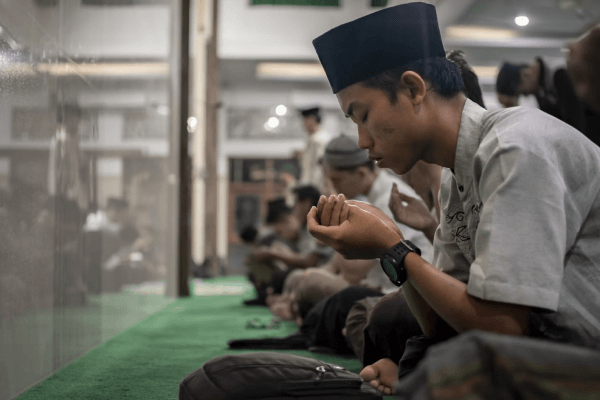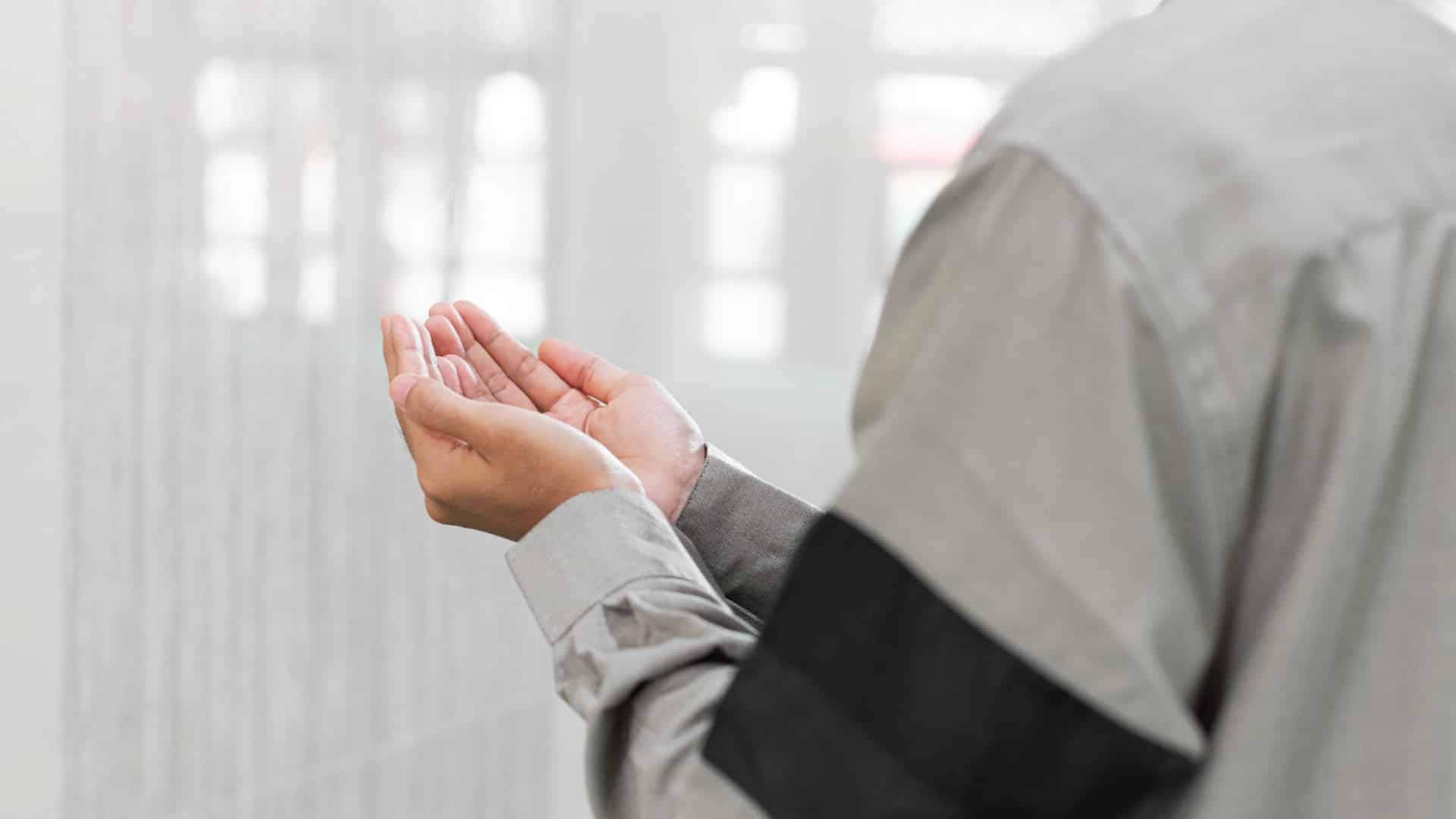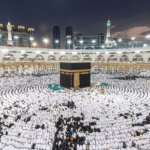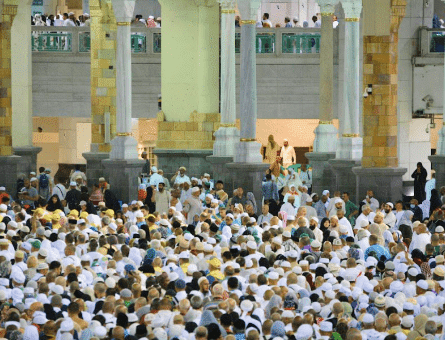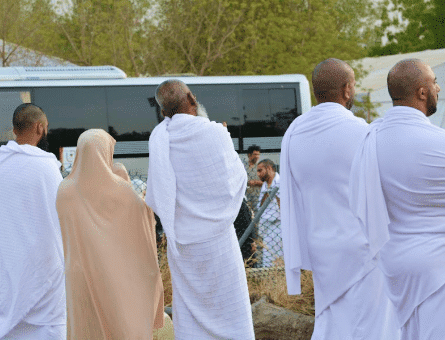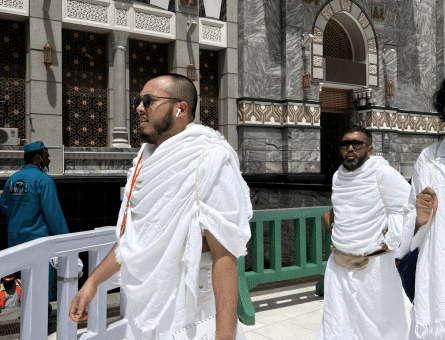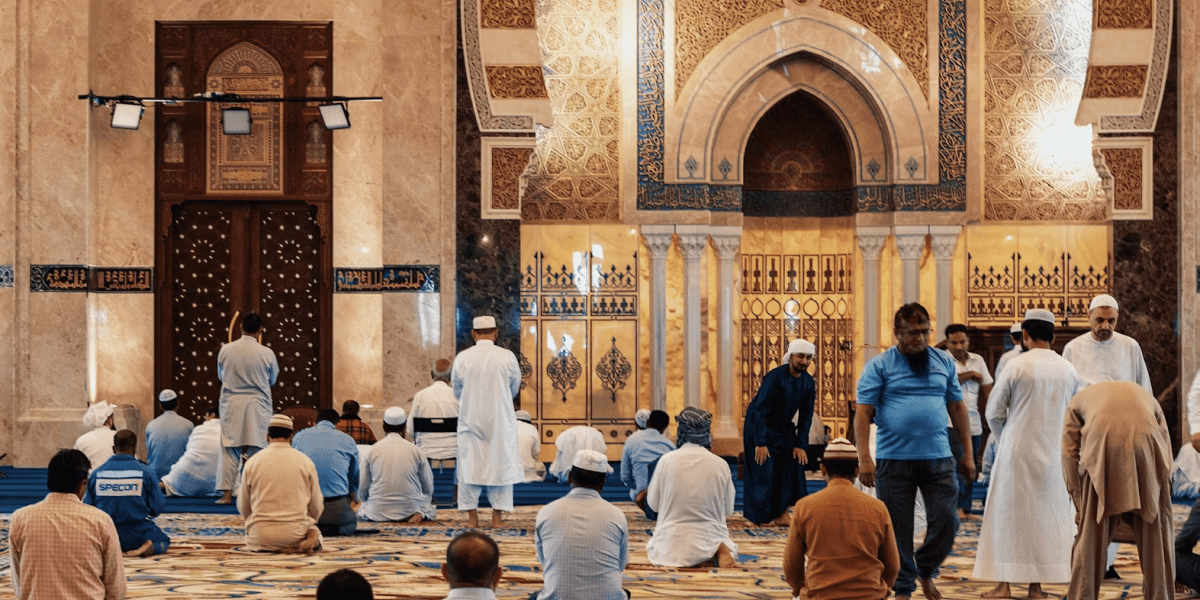Ramadan Rules – What are the rules of Ramadan? – Everything You Need to know
The Messenger (PBUH) of Allah SWT said, “When the month of Ramadan starts, the gates of heaven are opened, and the gates of hell are closed, and the devils are chained.” (Sahih al-Bukhari)
Every year, Muslims worldwide anticipate the sighting of the crescent moon that signifies the beginning of Ramadan, the ninth and most sacred month in the Islamic calendar. In line with the fourth pillar of Islam, Sawm, Muslims fast all through Ramadan.
Refraining from eating and drinking from dawn (sehri) till sunset (iftar), Muslims spend most of their time worshipping Allah SWT and helping those in need. In this article, we will be discussing the Ramadan rules. Let’s begin.
What Is Ramadan?
Before we jump to the Ramadan rules (the dos and don’ts), it is important to understand what the ninth month of the Hijri Calendar is actually all about. According to Islamic scriptures, it was the holy month of Ramadan when Allah SWT revealed the Holy Quran to Prophet Muhammad (PBUH) in the cave of Hira through the angel Jibreel (AS).
Furthermore, in the following years of prophethood, revelations regarding Ramadan were revealed along with acting upon the fourth pillar of Islam, Sawm (fasting). Allah SWT commanded the Muslim Ummah to fast from dawn till sunset, and to abstain from eating, drinking, smoking, and engaging in sexual and sinful activities.
Allah SWT in the Holy Quran says, “O you who believe, fasting is prescribed for you as it was prescribed for those who were before you, in order that you may learn taqwa (piety).” [Holy Quran, 2:183]

Therefore, Muslims must follow the rules of Ramadan as prescribed by Prophet Muhammad (PBUH).
When Will Ramadan Be Observed in 2024?
The first night of Ramadan 2024 will begin on Sunday, 10th of March, with the first day of fasting on the 11th of March 2024 and will end at sundown on the 9th of April 2024, depending upon the sighting of the moon.
Prophet Muhammad (PBUH) said, “Fast upon sighting the crescent moon, and end the fast upon its sighting. And should it be obscured, then complete 30 days of Shaban.” (Bukhari and Muslim)
Ramadan is the ninth month of the Islamic lunar calendar, which is based on the phases of the moon. Compared to the twelve months of the Gregorian calendar, which adds up to 365 days, the Islamic (Hijri) Calendar is eleven days shorter.
This is precisely why the Islamic lunar calendar moves eleven days backward on the Gregorian calendar every year. Simply put, Ramadan will always arrive eleven days earlier than it did the preceding year.
How Long Is Ramadan?
The month of Ramadan lasts 29 or 30 days, depending upon the sighting of two new moons. The first one signals the start of Ramadan and the second one determines the end of the sacred month and the beginning of Shawwal.
“Ramadan 2024 is expected to be 30 days”
What Invalidates a Fast During Ramadan?
There are sixteen things that can break one’s fast during Ramadan. These include engaging in the following,
- Sexual activity
- Masturbating
- Drinking
- Eating
- Vomiting deliberately
- Post-natal bleeding
- Menstruation
- Medicine
- Pills
- Injections
- Drips
- Kidney dialysis
- Letting out blood by means of cupping
- Smoking
- Consumption of any form of illicit drugs
How to Break Your Fast at Iftar

Fasting is the act of refraining from eating, drinking, and any sinful activity from dawn (sunrise) till dusk (sunset) for the sake of Allah SWT.
Prophet Muhammad (PBUH) said, “Allah the Exalted and Majestic said: ‘Every act of the son of Adam is for himself, except for Fasting. It is (exclusively) meant for Me, and I (alone) will reward it. Fasting is a shield. When any one of you is fasting on a day, he should neither indulge in obscene language nor raise his voice; or if anyone reviles him or tries to quarrel with him, he should say: ‘I am fasting.”
‘By Him (Allah), in Whose Hand is the life of Muhammad, the breath of the fasting person is sweeter to Allah on the Day of Judgment than the fragrance of musk. The one who fasts has two (occasions) of joy: one is when he breaks the fast, he is glad about the breaking of (the fast), and (the other) is when he meets his Lord he is glad about his fast.'” (Sahih Muslim)
When breaking your fast at iftar (sunset), make sure that you don’t waste any time and eat a piece of date or drink water as soon as possible.
“The Messenger (PBUH) of Allah SWT would break the fast with fresh dates before performing salah. If there were no fresh dates, then (he would break the fast) with dried dates, and if there were no dried dates, then he would take a few sips of water.” (Sunan At-Tirmizi)
Before opening your fast, do not forget to make a prayer and recite the following dua:
Transliteration: Allahumma inni laka sumtu, wa bika aamantu, wa ‘alayka tawakkaltu, wa Ala rizqika aftartu
English Translation Oh Allah! I fasted for You, and I believe in You, and I put my trust in You, and I break my fast with Your sustenance.
Transliteration: Dhahaba al-zama’ wa abtalat al-‘urooq wa thabata al-ajr in sha Allaah
English Translation: Thirst is gone, the veins are moistened and the reward is certain if Allaah wills.
What Happens If I Miss a Fast?
Whether intentionally or unintentionally, it isn’t uncommon for people to miss or skip one or more fasts. Although when it comes to fasting, Islam offers great flexibility even though it is a compulsory act. Therefore, if a person deliberately skips a fast, they must make up for it later in the year.
Allah SWT in the Holy Quran says, “Fasting is for a fixed number of days, and if one of you be sick, or if one of you be on a journey, you will fast the same number of other days later on. For those who are capable of fasting (but still do not fast), there is a redemption: feeding a needy man for each day missed. Whoever voluntarily does more good than is required will find it better for him, and that you should fast is better for you if you only know.” [Holy Quran, Surah Baqarah: 184]
Shaykh Ibn Baz (may Allah have mercy on him) was once asked, “What is the ruling on someone who broke the fast in Ramadan without a legitimate excuse, and he is approximately seventeen years old, and has no excuse? What should he do? Does he have to make up for the missed fasts?”
He replied, “Yes, he has to make up for the missed fasts, and he has to repent to Allah SWT, may He be glorified and exalted, for his carelessness and breaking of the fast.”
With regard to what was narrated from the Prophet Muhammad (PBUH):
“Whoever breaks the fast on one day in Ramadan, with no concession and no sickness, fasting an entire lifetime will not make up for it, even if he fasts it.”
The only Islamic way to compensate for a missed fast is to pay ‘Fidya,‘ a charitable donation equivalent to the amount of one complete meal to the poor.
Depending upon the price of basic staple food, the rate of Fidya changes every year. However, it is currently around £5 for one missed fast. This covers the cost of feeding one hungry person for a full day.
“£5 for each missed after as Fidya”
Furthermore, if you intentionally break a fast, then you must give Fidya worth £300, which is the equivalent cost of feeding 60 poor people, or observing 60 consecutive fasts during any time of the year, except for the days of Eid.
Can Women Fast While on Their Period?
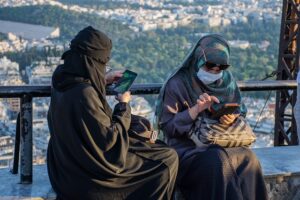
The fact that women are not allowed to fast during their period is actually a sign of Allah SWT’s mercy towards them. This is because the loss of blood during the period weakens a woman. So, if she were to fast while being on period, both the loss of blood and the fast would weaken her, which would be an unfair burden and could lead to health issues.
Therefore, being the Merciful, Allah SWT has allowed women to skip fasts during the days of menstruation and to compensate for them anytime in the following year.
Mu’adhah once said, “I asked Aisha (RA),
‘Why must we make up the fasts missed due to our menstruation, and not prayers?’
Aisha (RA) said,
‘That was what the Messenger (PBUH) of Allah SWT told us to do. We were ordered to make up the fasts, and we were ordered not to make up the prayers.'”
Can You Shower During Ramadan?

Ibn Qudamah said in al-Mughni, 3/18: “There is nothing wrong with a fasting person taking a bath. He quoted as evidence the report narrated by al-Bukhari (1926) and Muslim (1109) from ‘Aishah and Umm Salamah that Fajr would come and the Messenger of Allah (peace and blessings of Allah be upon him) would be junub (in a state of major ritual impurity) following intimate relations with his wife, and he would do ghusl and fast.”
Abu Dawud (2365) narrated that one of the Companions of the Prophet (peace and blessings of Allah be upon him) said: I saw the Messenger of Allah (peace and blessings of Allah be upon him) pouring water over his head when he was fasting, because of thirst or heat. (Classed as sahih by al-Albani in Sahih Abi Dawood)
Therefore, if you feel hot, it is permissible to take a shower or bath while fasting. However, one should ensure they don’t deliberately swallow any water as it will invalidate their fast.
Do not deliberately swallow water otherwise this will invalidate your fast
Can I Listen to Music During Ramadan?

Allah SWT in the Holy Quran says, “O you who believe! Observing As-Sawm (the Fasting) is prescribed for you as it was prescribed for those before you, that you may become Al-Muttaqun (the pious).” [Holy Quran, Surah al-Baqarah 2:183]
In light of this ayah, Prophet Muhammad (PBUH) said: “Fasting does not just mean (abstaining) from eating and drinking, rather fasting means (abstaining) from idle and obscene talk.” (Narrated by al-Hakim, Sahih al-Bukhari)
When it comes to the permissibility of listening to music while fasting, Islamic scholars have different opinions. While some consider music to be haram, another group of scholars considers instrumental music permissible.
Even though listening to music doesn’t break one’s fast, it makes it worth nothing. Majmoo al-Fataawa says, “The obligation of enjoining good and forbidding evil (in this context) is related to intentional listening (to music) and not to merely hearing it, just as in seeing something that is prohibited by looking at it accidentally … The same ruling applies to experiencing any prohibitions by the five senses: sight, hearing, touch, smell, and taste.
The obligation of enjoining good and forbidding evil is related to the willful actions of the person.
As for what happens without his choice, there is no obligation of enjoining good and forbidding evil therein.
Ibn Majah narrated that Prophet Muhammad (PBUH) said,
“There may be someone who fasts and gets nothing from his fast except hunger, and there may be someone who prays qiyaam and gets nothing from his qiyaam but a sleepless night.” (Sahih)
To elaborate, sins such as listening to music detract one from the reward of fasting. This means that the more a fasting person sins, the more grievous their sins are, and the more it detracts them from the path of a righteous fast, resulting in them losing the reward for fasting altogether.
Hence, even though an individual has abstained from eating and drinking the entire day, listening to music is a way of disobeying Allah SWT and depriving themselves of the reward of fasting.
Summary – Ramadan Rules
Ramadan is the ninth month of the Islamic calendar and a time when Muslims worldwide observe fasting from sunrise till sunset for the sake of Allah SWT. When it comes to Ramadan guidelines, the Prophet Muhammad (PBUH) has clearly defined them for the entire ummah.
According to the Sunnah, while fasting, Muslims shouldn’t only abstain from eating food and drinking anything but should also make sure that they don’t engage in any sinful or sexual activity. Instead, one should spend their time worshipping Allah SWT and asking for His unending mercy, blessings, and forgiveness.
Through His Names
New course with
Ustadh Shabbir Hassan




